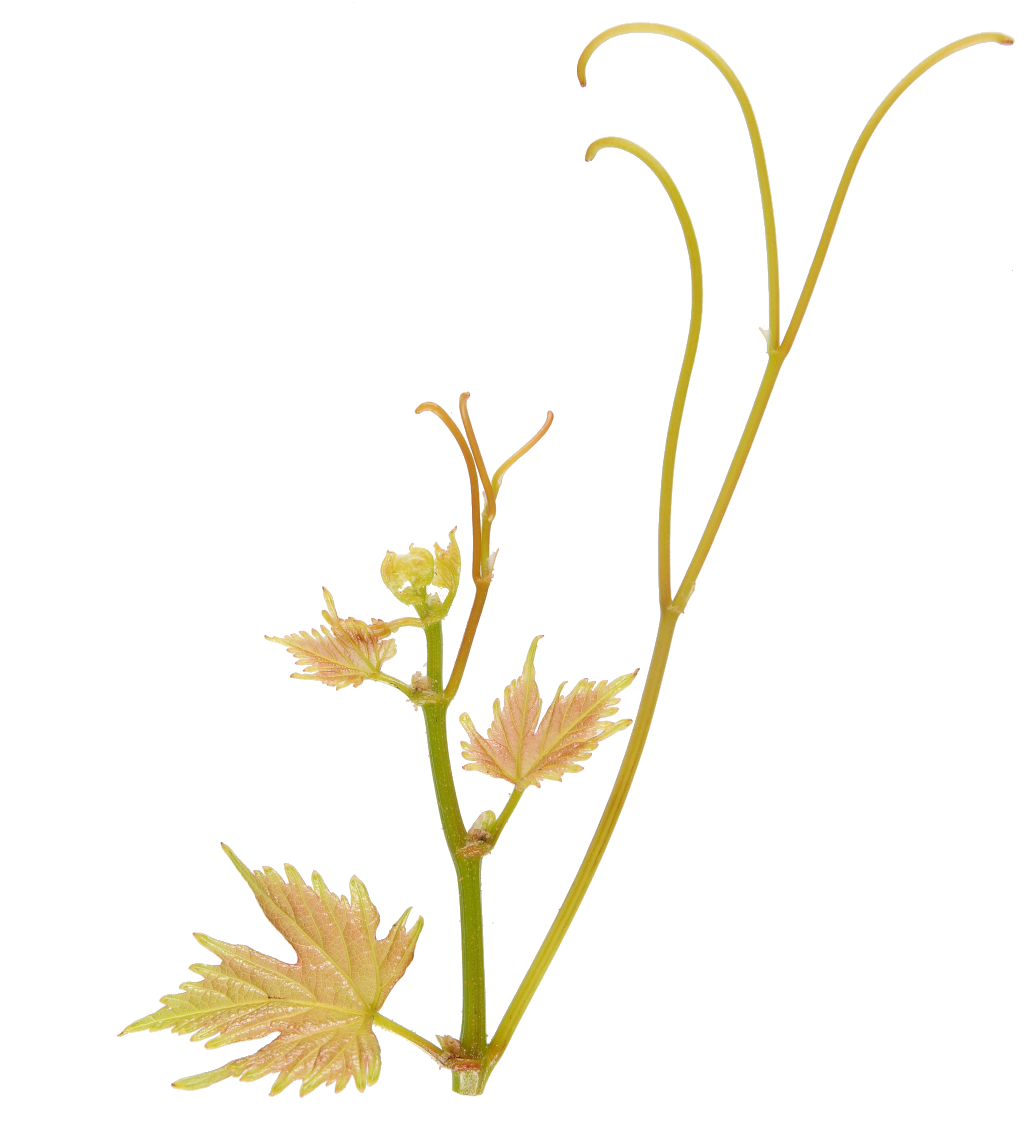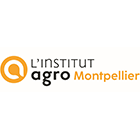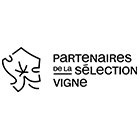Sophie
B
Variety exclusively for amateurs and private domestic use.
The geographical origin of the variety is specified or, if this is not possible, the area in which it is traditionally cultivated. The genetic origin of the variety is also indicated whenever it is known from hybridiser data or from genetic analyses published or obtained by the teams at INRAE in Montpellier (UMR AGAP) and Vassal-Montpellier Grapevine Biological Resources Centre (CRB-Vigne).
The variety Sophie (an interspecific hybrid) was obtained under the name Aron by J. Csizmazia and L. Bereznai in Hungary in 1981. This variety would result from the crossbreeding between Villard blanc and Perlette.
This information indicates the normal and statutory use for the grapes.
Variety exclusively for amateurs and private domestic use.
Name under which the variety is officially registered in the catalogue of grapevine varieties in France and under which it may be propagated and disseminated.
Sophie
Recognised alternative names that may be used to identify the propagation material of the variety in France or in other member countries of the European Union.
In Austria and Hungary, Sophie is officially designated as "Aron".
This information indicates on which list the variety is registered (A or B), whether it is classified for wine grapes, and in which member countries of the European Union the variety is also officially registered (for more information, see the "Legislation" menu.
In France, Sophie is officially listed in the "Catalogue of vine varieties" since 2013 on the A list. This variety is also listed in the catalogue of Germany and Austria.
Evolution of cultivated areas in France
The figures provided are taken from vineyard land registers (IVCC, ONIVIT, ONIVINS), general agricultural censuses (SCEES-INSEE) and the current computerised vineyard register (DGDDI, FAM).
Regional vine planting data is available on the following site: https://visionet.franceagrimer.fr/Pages/DonneesInteractivesDocs.aspx?sousmenu=observatoire%20de%20la%20viticulture.
The figures provided are taken from vineyard land registers (IVCC, ONIVIT, ONIVINS), general agricultural censuses (SCEES-INSEE) and the current computerised vineyard register (DGDDI, FAM). Regional vine planting data is available on the following site: https://visionet.franceagrimer.fr/Pages/DonneesInteractivesDocs.aspx?sousmenu=observatoire%20de%20la%20viticulture.
Year |
ha |
|
|---|---|---|
|
2018 |
0 |
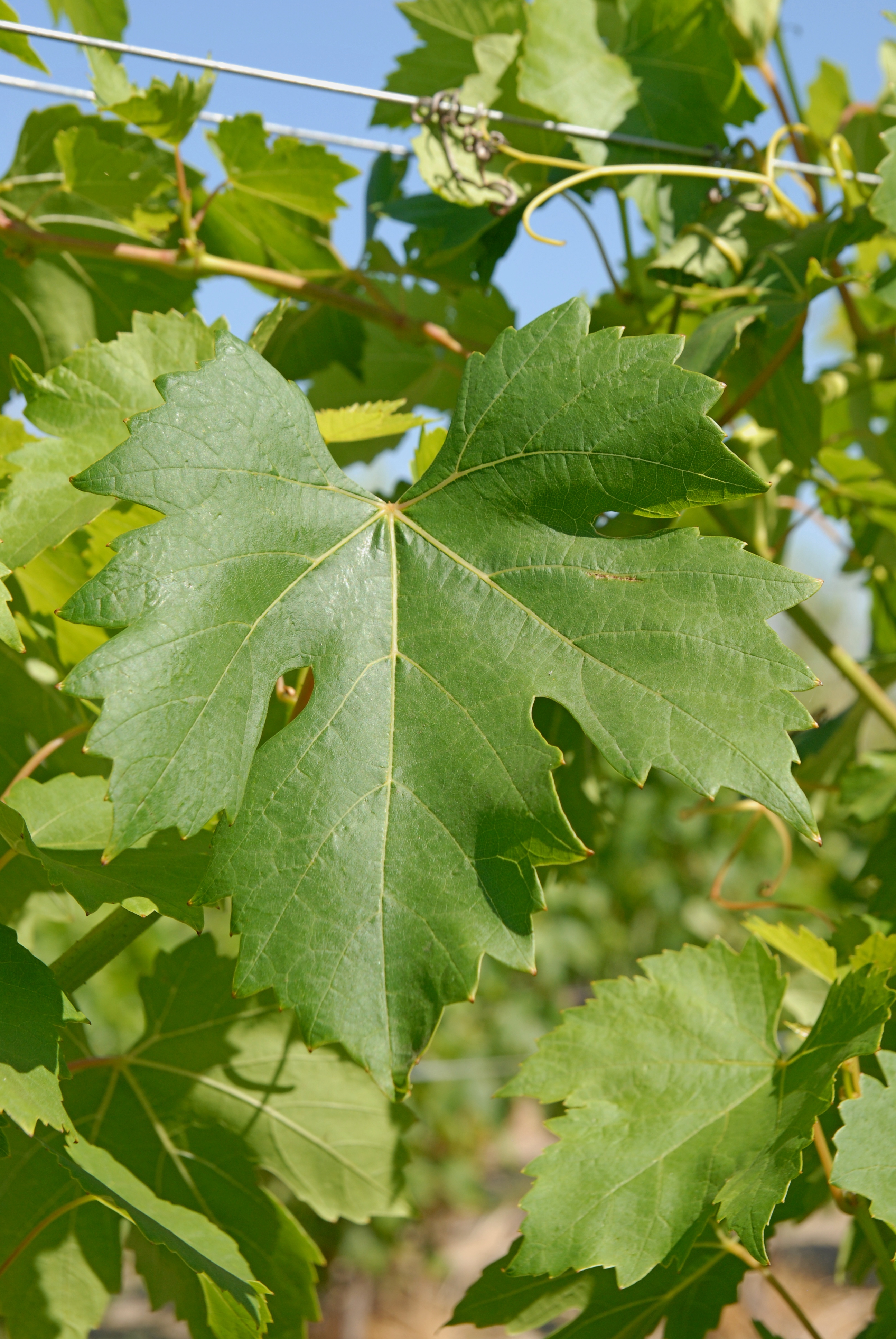
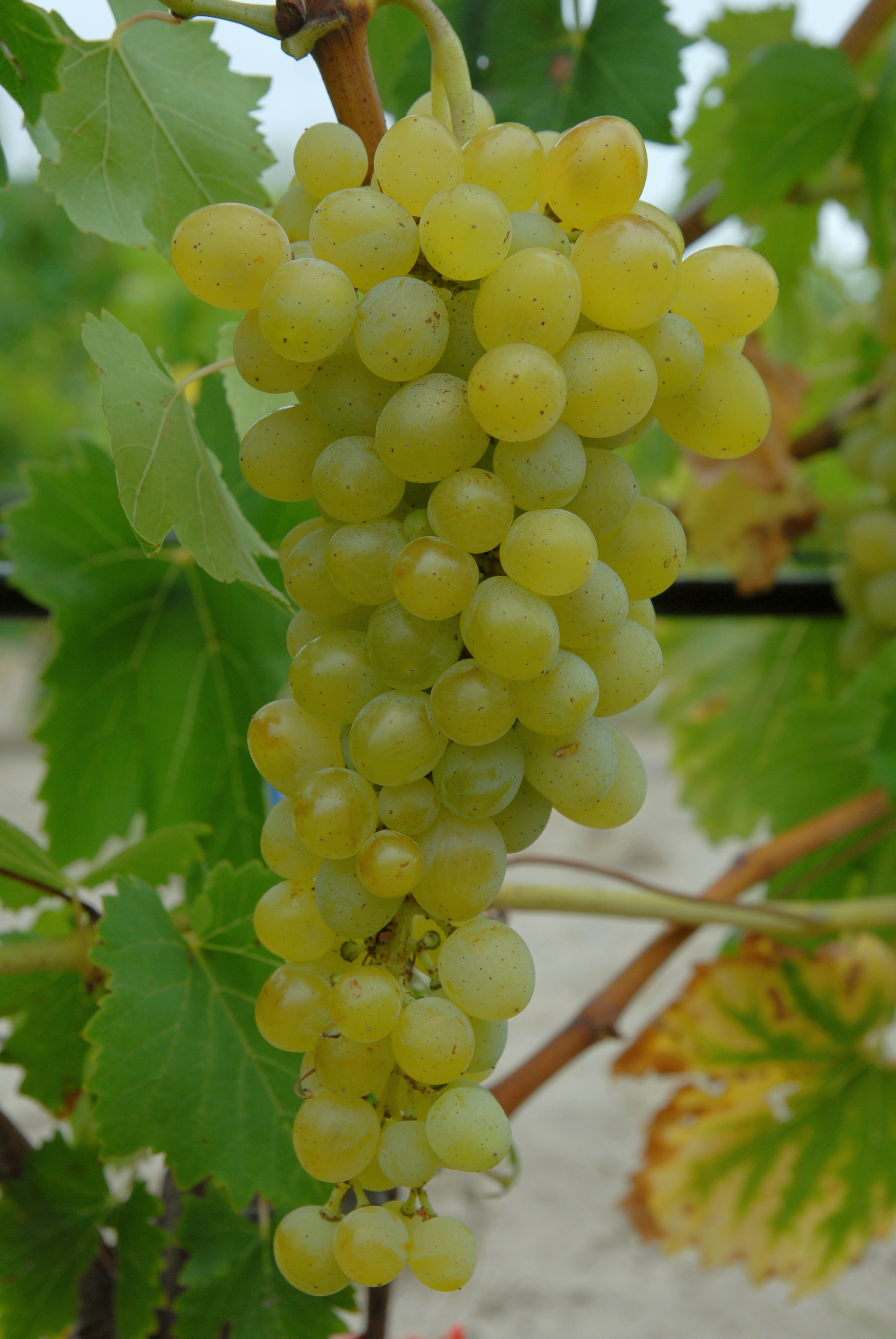
Only the principal ampelographic elements enabling the varieties to be characterised and identified are provided. They are presented according to the descriptor code recognised by the International Organisation of Vine and Wine (OIV), the International Union for the Protection of New Varieties of Plants (UPOV), the Community Plant Variety Office (OCVV) and Bioversity International (for more information, see the "Ampelographic glossary" menu). The photographs of leaves and grapes were taken in natural conditions, on the vine, in very similar situations in terms of growing conditions (sandy soil, Mediterranean coast): - Domaine de l'Espiguette (IFV), Le Grau du Roi (Gard), - Domaine de Vassal (INRAE), Marseillan (Hérault), - La Gaillarde Campus (Institut Agro | Montpellier SupAgro), Montpellier (Hérault). Only a few photographs, including the tips of bunches, were taken in other conditions.
- the tip on the young shoot with a very low to low density of prostrate hairs,
- the reddish young leaves, with no or a very low density of erect and prostrate hairs,
- the shoots with red-striped internodes,
- the wedge-shaped adult leaves, with five lobes, an open V-shaped petiole sinus, moderately long teeth compared to their width at the base with straight or convex sides, no or a very weak anthocyanin coloration of veins, a shiny involute leaf blade, and on the lower side of the leaves, no or a very low density of erect and prostrate hairs,
- the ovoid berries.
Genetic profile
The genetic profile of the variety is provided for the 9 microsatellite markers (or SSR markers) selected under the European programme GrapeGen06 (http://www.eu-vitis.de/index.php) and by the OIV. The absolute size values of the alleles may vary slightly from one laboratory to another, but the relative differences between the two alleles of one single microsatellite are constant. The genetic analyses were conducted by the INRAE Montpellier team (UMR AGAP) and the IFV’s Plant Material Centre.
| Microsatellite | VVS2 | VVMD5 | VVMD7 | VVMD27 | VRZAG62 | VRZAG79 | VVMD25 | VVMD28 | VVMD32 |
|---|---|---|---|---|---|---|---|---|---|
|
Allele 1 |
131 |
229 |
237 |
178 |
180 |
248 |
240 |
235 |
239 |
|
Allele 2 |
131 |
234 |
253 |
186 |
188 |
262 |
240 |
243 |
249 |
The data on suitability are the result of field observations or, if none are available, of bibliography mining and the study of bibliographic references.
Sophie has a semi-erect to erect bearing. This variety is vigorous and productive.
These remarks are also the result of field observations or, if none are available, of bibliography mining and study of bibliographic references.
Sophie is not very sensitive to downy mildew and powdery mildew, but it is a little more susceptible to grey rot.
The growth stages indicated are the result of obsrvations made at the Domaine de Vassal Estate where the set of these varieties form a collection. The results are indicated compared to the Chasselas vine variety as a reference in order to make comparisons between years and different sites. As such, for information purposes, the dates for the Chasselas B growth stage at Domaine de Vassal are as follows: - Bud burst, 21 March (average over 50 years) - Grape maturity, 14 August (average over 50 years)
Bud burst: 1 day before Chasselas.
Grape maturity: early-season, 1 week after Chasselas.
The size of grape clusters and berries indicated are based on the following scales: - Wine grape varieties Size : Very small Bunch (g) : ≤ 100 Berry (g) : 1 - Table grape varieties Bunch (g) : 150 Berry (g) : 2 - Wine grape varieties Size : Small Bunch (g) : 100 - 200 Berry (g) : 1,5 - 2 - Table grape varieties Bunch (g) : 150 - 250 Berry (g) : 2 - 3,5 - Wine grape varieties Size : Moderate Bunch (g) : 200 - 250 Berry (g) : 2 - 2,5 - Table grape varieties Bunch (g) : 250 - 400 Berry (g) : 3,5 - 5,5 - Wine grape varieties Size : Large Bunch (g) : 250 - 400 Berry (g) : 2,5 - 3,5 - Table grape varieties Bunch (g) : 400 - 700 Berry (g) : 5,5 - 8 - Wine grape varieties Size : Very large Bunch (g) : 400 Berry (g) : 3,5 - Table grape varieties Bunch (g) : 700 Berry (g) : 8 Remarks concerning the characteristics of the wines are generally based on tastings organised by juries of professionals.
Sophie’s bunches are large to very large and moderately compact. The berries are large, simple-flavored, with a thin to moderately thick skin and a firm and juicy pulp.
In this section, the list of certified clones is given. Information on clone conservatories is also provided.
There is no certified clone for this variety yet.
Bibliography
- Documentary collections of the Centre de Ressources Biologiques de la Vigne de Vassal-Montpellier, INRAE - Institut Agro | Montpellier, Marseillan, France.
- Journal of Horticultural Research 2014, vol. 22(1): 101-107, J. Lisek, Poland.
